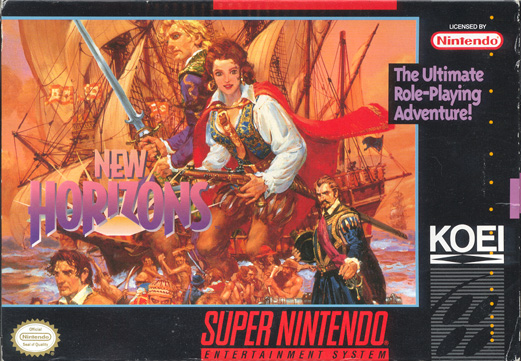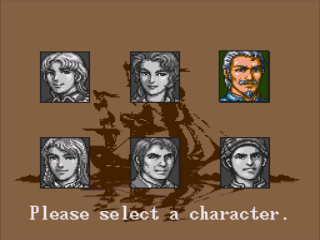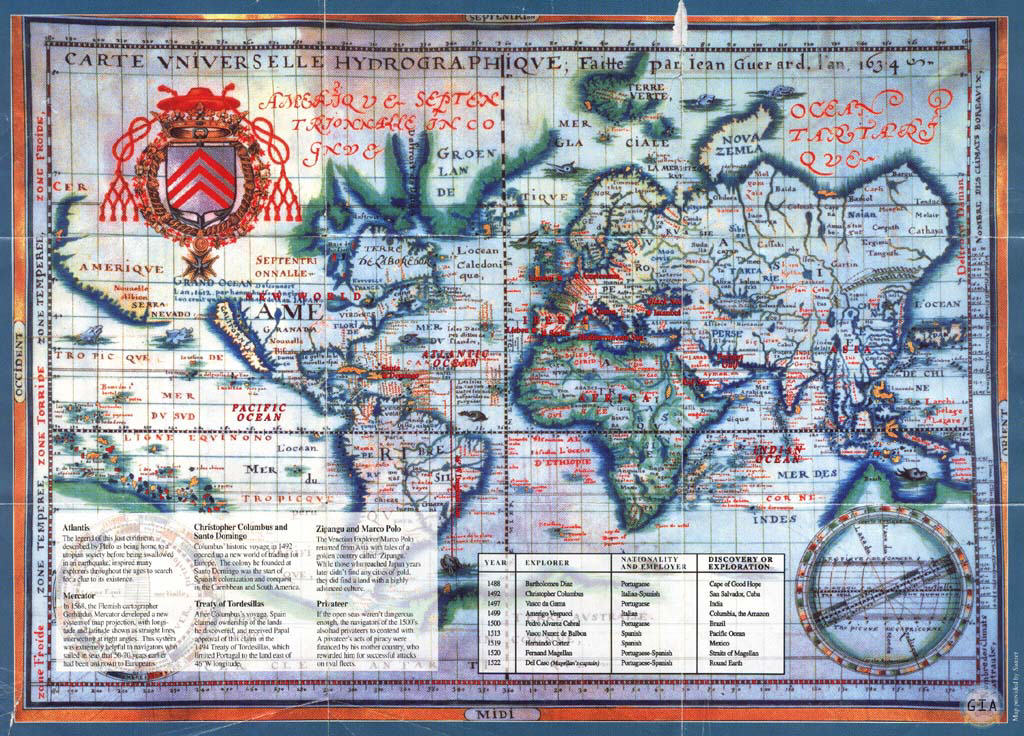Last updated on March 4, 2013
Ah, Koei. One of the greats who has, unfortunately, fallen under hard times. Those hard times, specifically, are the production of massive quantities of Dynasty Warriors games with no end in sight. Every once and a while, they’ll release another off-kilter simulation experience, but those are now few and far between.
Since I’m assuming some of my audience lives in ignorance of Koei’s “Historical Simulation Series” / “Rekoeition” led by director Kou Shibusawa (not his real name), allow me to demonstrate:
Uncharted Waters: New Horizons (it’s a sequel) is what we’d call an open world game – specifically, that open world is limited to the time of the 15th century and the discovery of the world by the European powers of the time. Within it, you’re given the ability to follow six different storylines, though these “goals” are just directives rather than binding agreements. Sure, there’s a “plot” for each one, and certain tasks become much easier because of their stats, but you can really do anything you want in the game. The world map is your oyster, and you can do whatever you please for as long as you want.
This sounds like a game I wouldn’t like, right? I hate unfocused experiences, games that give you neither a goal nor a suitable objective to direct your skills. It bothers me that a game designer wouldn’t tell me what they wanted me to achieve, or give me a goal. Some open world games did do this well; Grand Theft Auto III, for example, still works because it 1. makes the player the avatar, thus investing them into the experience and 2. give them objectives, but doesn’t handhold you into certain methods to achieve them. It turns out that there’s a lot of ways to blow something up. The reason why we all remember GTAIII as something great wasn’t the setting (although famous actors help add to it), or the violence (which was shocking, but got old quick), or even the graphics (which were amazing, but have been eclipsed); it was because it was fun, and it was fun precisely because you could beat the game your way.
I don’t hate open world, but it’s modern implementation: lots of freedom, nothing interesting to do. That’s the exact opposite of Uncharted Waters
See, New Horizons broke this mold in 1992 (PC version, 1994 for the much improved SNES version) by giving you a goal…and then letting you achieve that goal in whatever way. You can be a trader, continually finding rare quality goods in ports around the world to sell and make a massive profit. You can be the first cartographer to map the entirety of the known world, sailing inch by inch through the world’s oceans to draw it. You can search for new discoveries, landmarks, animals, and the like. You can be a commodore, seeking to remove the pirate threat from the world’s waters. Alternately, you can loot, pillage, and do all manner of pirate-like things, with turn-based naval combat and captain duels. If this all sounds like a lot of stuff to take in, it is. This is a complicated and complex game that seeks to recreate an era of high exploration and shove the player right into the thick of a contentious historical era.
Yes, you could criticize it because of its “plot” elements, but those are just incidentals. There are even more problems to consider – what places build which ships? How much do they cost? How much crew should I have, and how much food and water can I take? How much cargo can my ships hold (you can make fleets of a dozen ships – tell me that isn’t awesome)? How many cannons? These are all interesting decisions that depend on your playstyle. You never have to attack other enemy ships, although it sure helps to take their ships and sell them (or use them). You never have to do any trading, although making a great deal of cash early saves you a great deal in the late run; you can even deposit it into a bank to gain interest. Aligning yourself with one country may prevent you from visiting other ports later (unless you sneak in at night); Italy and the Ottoman Empire have bad relations, for example.
There’s a host of variables, alliances, numbers, and more numbers to consider. This would be an absolute nightmare if the game didn’t give you a clean interface to manage this information, but it does! Well, it doesn’t take the time to explain much of anything (it came with a hefty 100+ page full color instruction booklet, after all), but part of the fun is figuring out what everything does. Even the latitude and longitude coordinates they give you correspond to an actual globe; be prepared to write those down, though, or you’ll forget and wander around Eastern European shores for no reason. Contrary to the map above, you can actually visit anywhere in the world and discover things notable of those regions. Japan, especially, retains its own culture, although you’ll have to survive multiple typhoons if you want katanas or Japanese warships.
It’s similar to that “one more turn” syndrome a good game of Civilization can provoke, but it really nails that theme of high adventure and exploration. There’s always a new experience waiting around the corner within the context of the settings, and the plot elements add a little random flavor to the proceedings. The historical nature, though, always made Koei’s games shine – their attention to detail, their attempt to make history playable in all its weird quirks and, possibly, horrific treatment It’s so bizarre how all native tribes in the game can be bribed with food and then plundered without concequence, thus representing the imperialist attitude of the day.
Modern games have clipped history a bit. Check out Civilization V; notice how they’ve replaced Stalin with Catherine the Great as Russia’s leader? You can’t even pick them anymore. I like that it’s not censored, even from this predominantly Japanese perspective. Like the Bible, you can totally find things you don’t like in it, but that doesn’t mean they aren’t true. Check out 1 Corinthians 1:
20 Where is the wise man? Where is the scribe? Where is the debater of this age? Has not God made foolish the wisdom of the world? 21 For since in the wisdom of God the world through its wisdom did not come to know God, God was well-pleased through the foolishness of the message preached to save those who believe. 22 For indeed Jews ask for signs and Greeks search for wisdom; 23 but we preach Christ crucified, to Jews a stumbling block and to Gentiles foolishness, 24 but to those who are the called, both Jews and Greeks, Christ the power of God and the wisdom of God. 25 Because the foolishness of God is wiser than men, and the weakness of God is stronger than men.
26 For consider your calling, brethren, that there were not many wise according to the flesh, not many mighty, not many noble; 27 but God has chosen the foolish things of the world to shame the wise, and God has chosen the weak things of the world to shame the things which are strong, 28 and the base things of the world and the despised God has chosen, the things that are not, so that He may nullify the things that are, 29 so that no man may boast before God. 30 But by His doing you are in Christ Jesus, who became to us wisdom from God, and righteousness andsanctification, and redemption, 31 so that, just as it is written, “ Let him who boasts, boast in the Lord.”
The modern world calls those old narratives a bunch of intolerant nonsense; based on our cultural standards, it’s absolutely true. But if God’s truth overwhelms our own, what can we do other than believe and accept it? I’ve never understood why people have a problem “wrestling” with the text. The words lay before you, offensive and comforting all at the same time. We accept this with history, interestingly enough (well, not all of us; some make retrospective judgments of the past regardless, unfairly I might add), but holy books don’t get the benefit of the doubt.
So yeah, history is awesome in whatever form it comes. Thanks to Koei, I know too much about obscure parts of history!
You should really buy it now! It’s on the Wii VC for eight dollars, and that’s a steal for this magnificently fun experience.



